Create pages in Confluence
10 min
Beginner
By the end of this lesson, you'll be able to:
- Create a page
- Collaborate with live docs
- Browse and select page templates
- Explain the difference between publishing and updating content
Create pages
You can create a Confluence page using either the Create button or + sign in the space sidebar.
👇 Here's how to create a page using both methods.
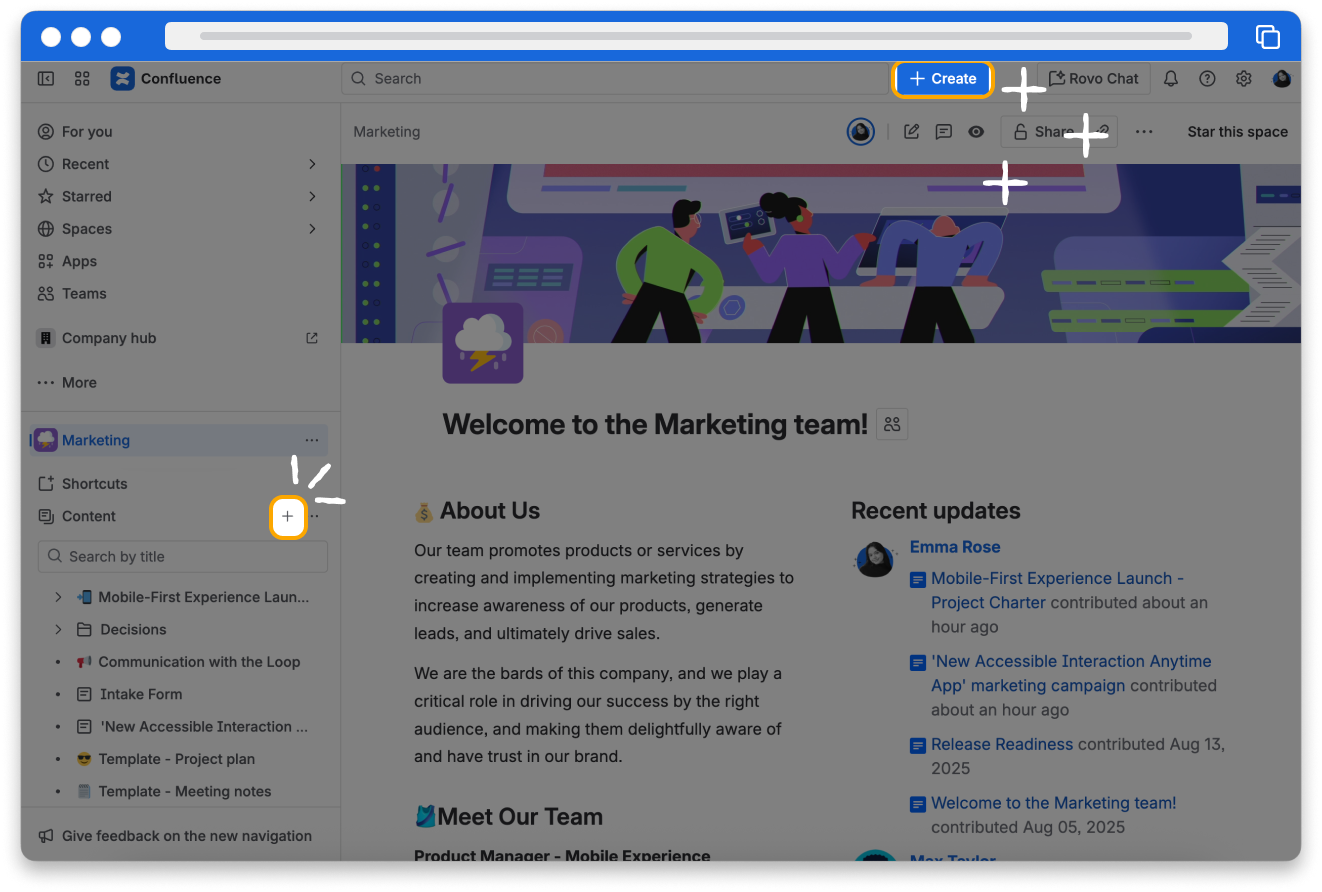
You can also press C on your keyboard to create a new page.
You control who can view and edit your pages.
👇 To change page restrictions, select the lock icon next to Share button and choose an option from the dropdown.
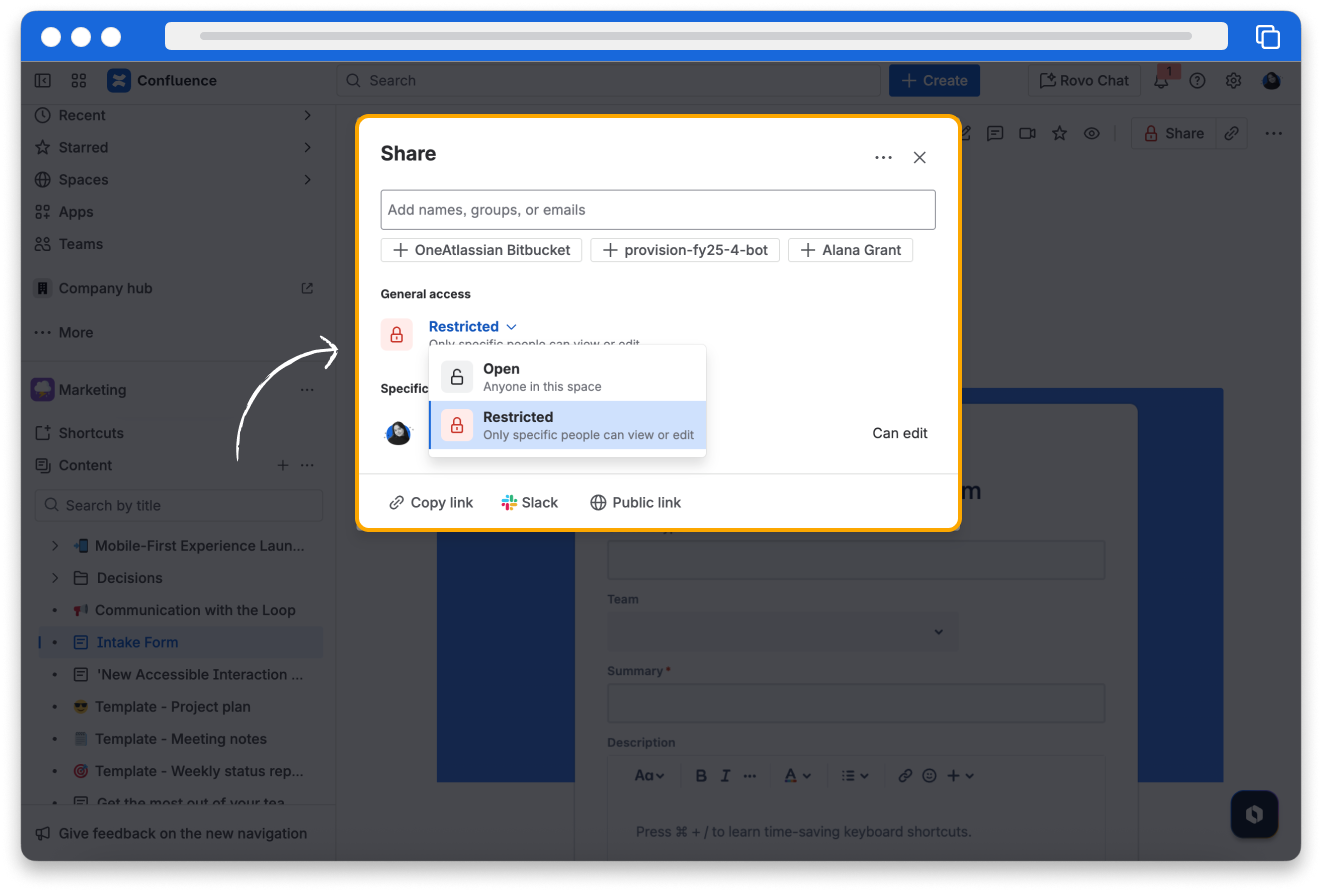
By default, all users will be able to view and edit your page. But, if you need to include secure information on a page, you can change these restrictions.
Child pages inherit view restrictions from their parent page.
If a user can’t view a page, they won’t be able to view anything nested under it.
But, child pages don’t inherit editing restrictions from their parent page.
If you want to limit editing on child pages, you need to add that restriction to each child page.
As you edit your page, Confluence saves your work automatically. Every page saves as a draft that only you and other users with edit restrictions can see. Even if you close the page, Confluence saves your draft.
👇 You can find your drafts in the sidebar.
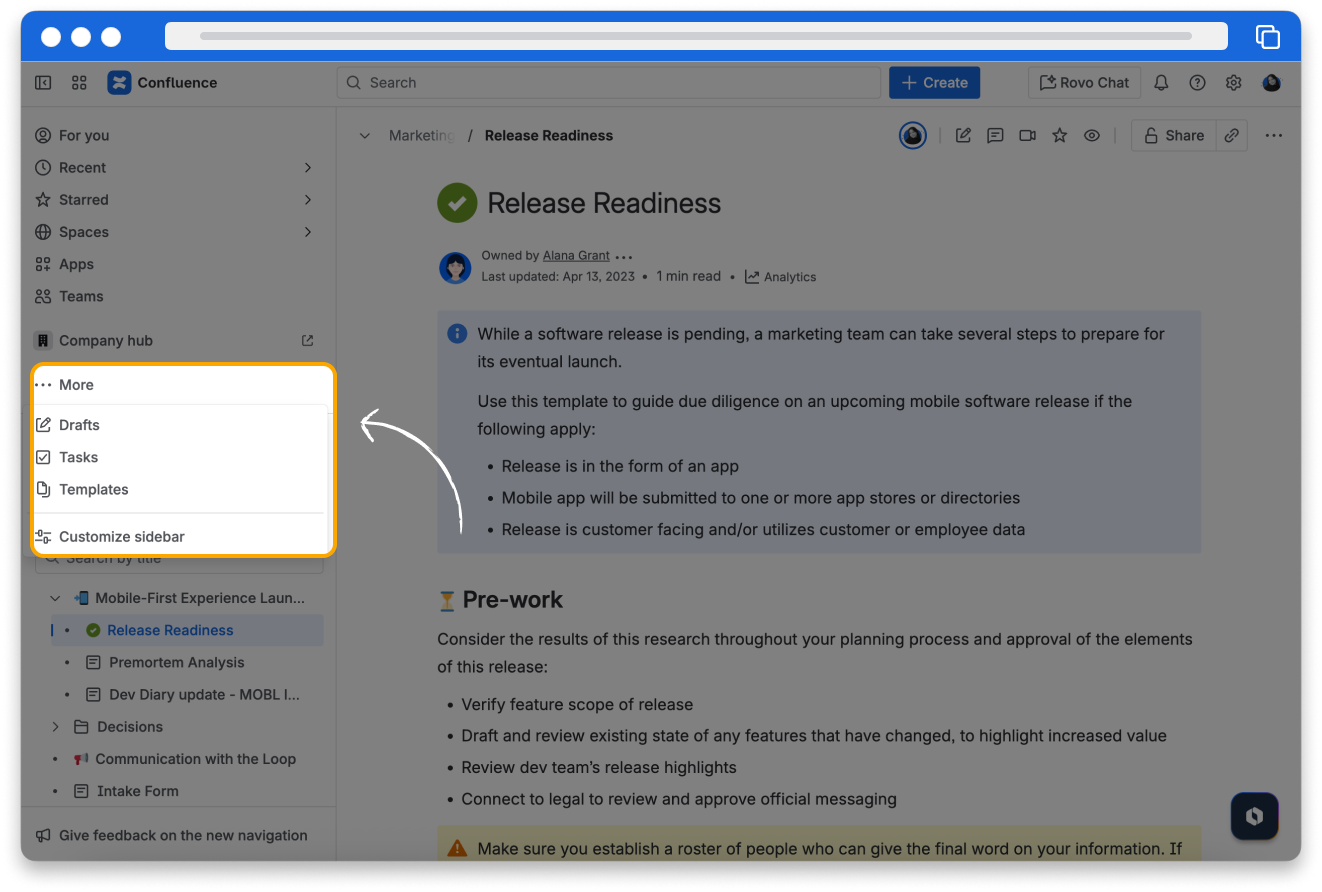
Collaborate in real time with live docs
Live docs are dynamic, collaborative documents that allow multiple users to edit content in real time. You don't need to publish for changes to be visible. All edits are instantly saved and reflected to everyone with access.
Live docs must be turned on for your space by a space admin. If you don’t see the option, you can ask your admin to enable it in Space settings.
To create live docs:
- At the top of Confluence navigation bar, select the Create button.
- Select Live Doc from the menu.
- Alternatively, you can click the + icon in the sidebar and choose Live Doc.
👇 Here’s where you can create live docs.
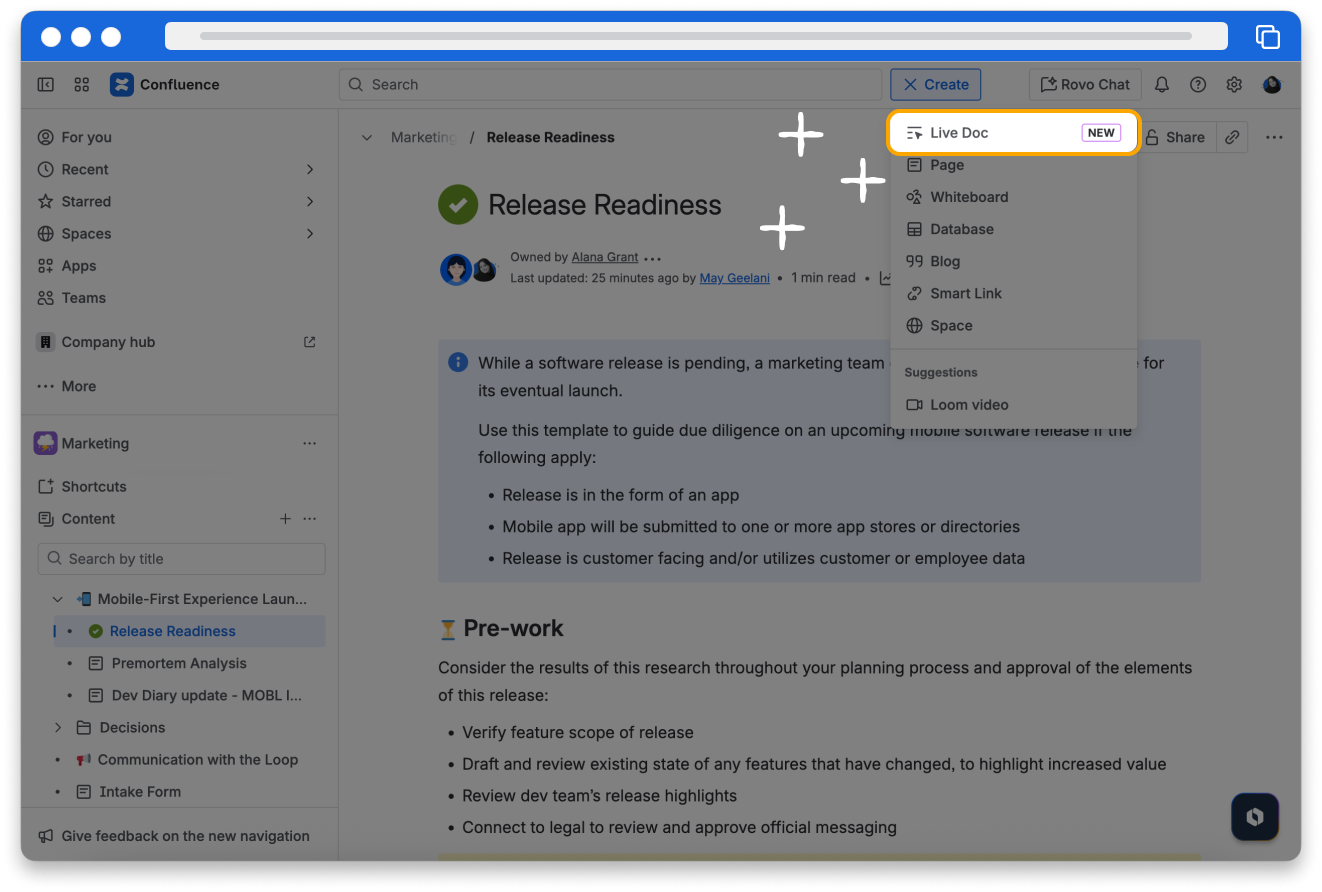
You can easily convert any existing Confluence page into a live doc. Open the page, select the More actions (represented by ...), and choose Convert to live doc.
Use page templates
When you create a new page, you can start from a blank page or a page template. Page templates are pre-formatted pages that include instructions on filling out the page. They provide a starting place to save you time and keep your content well-organized and consistent with similar pages. Confluence has over 100 templates.
To use a template, first create a new page. When you click the More actions (represented by ...) menu and select Templates and import, a panel will open on the right side of your screen. This panel provides a list of templates for you to browse.
To find a template that suits your needs, try these tips:
- Type in the search box to find a template that fits your needs
- Select the category bubbles to filter quickly
- Hover your cursor over a template to see a preview
👇 Here’s where you can find templates.
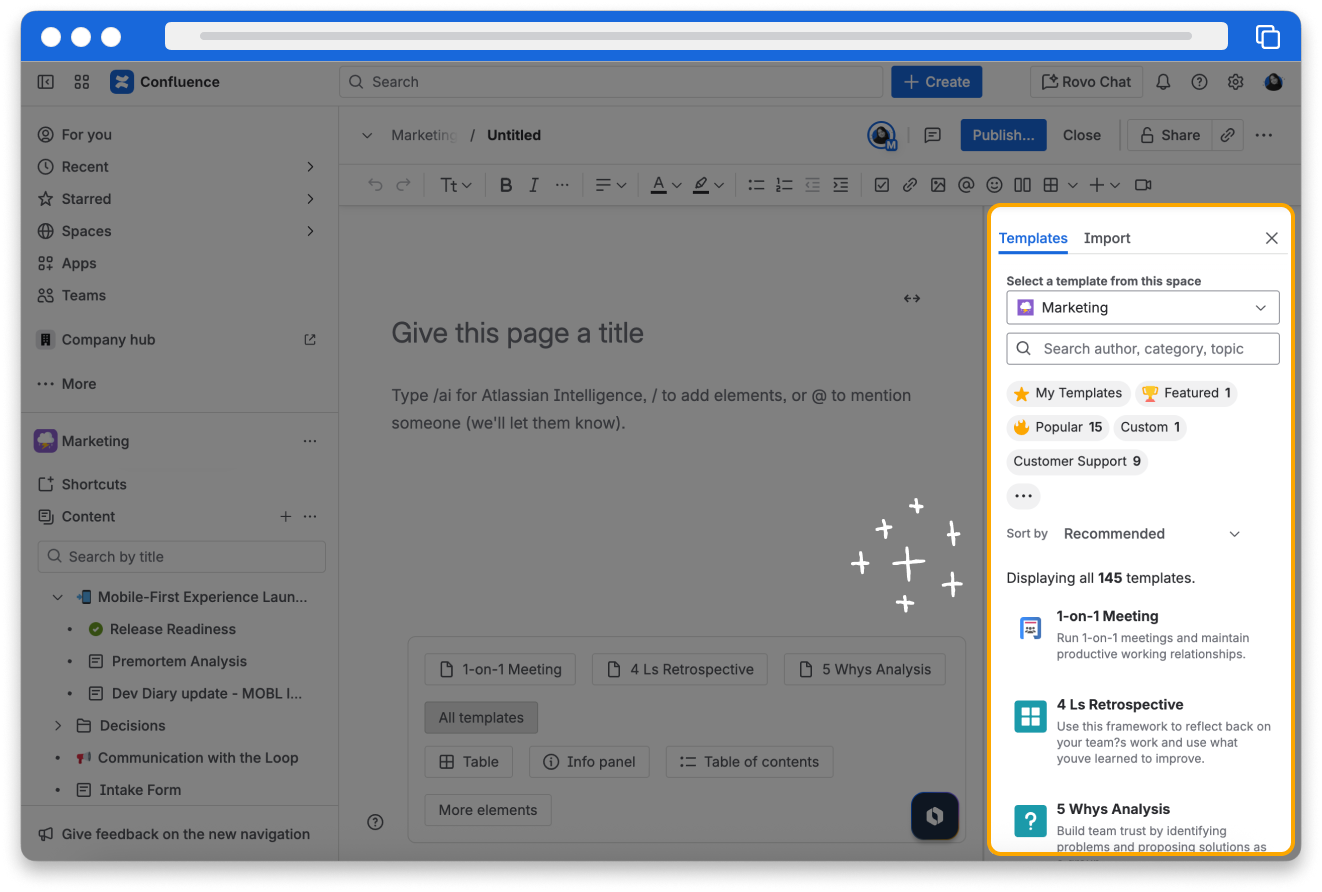
You can only use page templates when creating a new, blank page. You can’t add a template to a page you’ve already published or edited.
Publish and update pages
When you click Publish, you’re creating a static version of the page that people can view without editing. Until you click Publish, a page is a draft.
👇 Click the Publish button to let your team view your page.
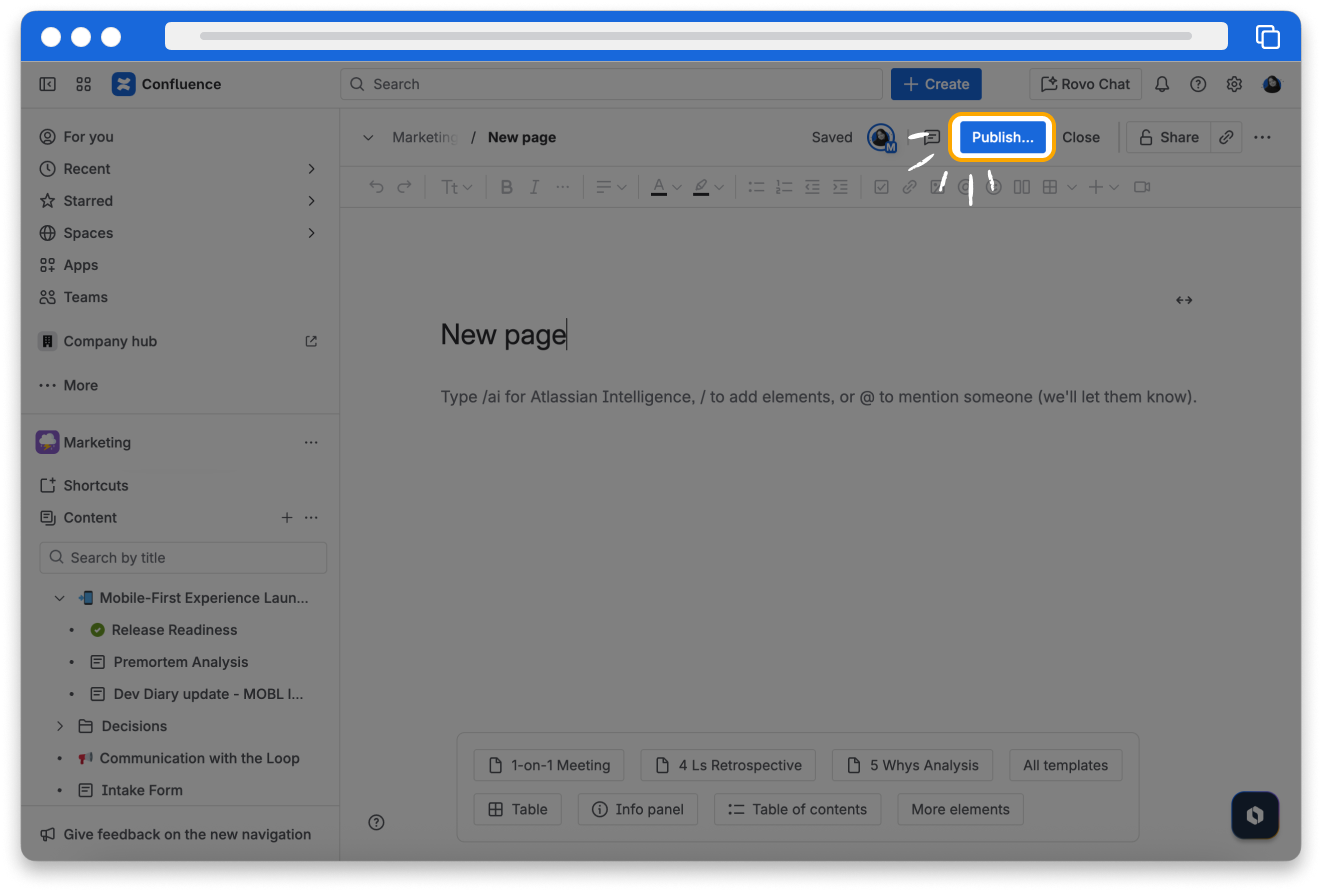
Confluence pages are iterative, collaborative, and flexible. If you edit a published page, you can update the page to share that new version.
👇 Click the Update button to make your page edits viewable by your team.
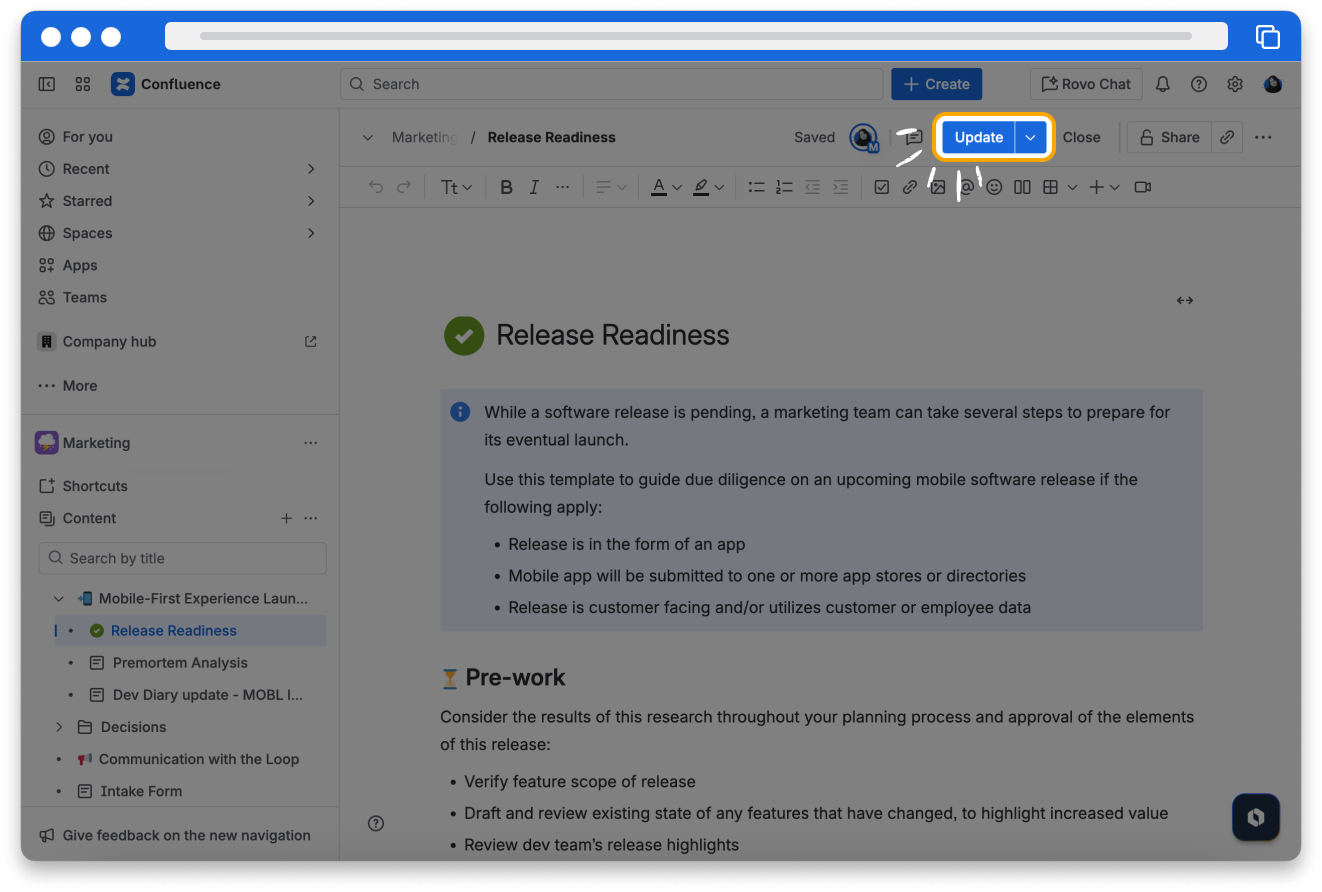
If you click the drop-down menu next to the Publish or Update button, you’ll see several options. You can change:
- Where the page will publish or update
- Who can view and edit the page
- If there’s a version comment
- When the page will publish or update
- If the content is a page or a blog post
You can also update a page without notifying watchers. While you may want users watching a page to get a notification for significant changes, you may not need to send a notification when you correct a typo or update a couple of sentences. We recommend you use this option often as Confluence sends a notification to all watchers by default when a page updates.
👇 You can update a page without notifying watchers. By default, page watchers receive notifications for updates.
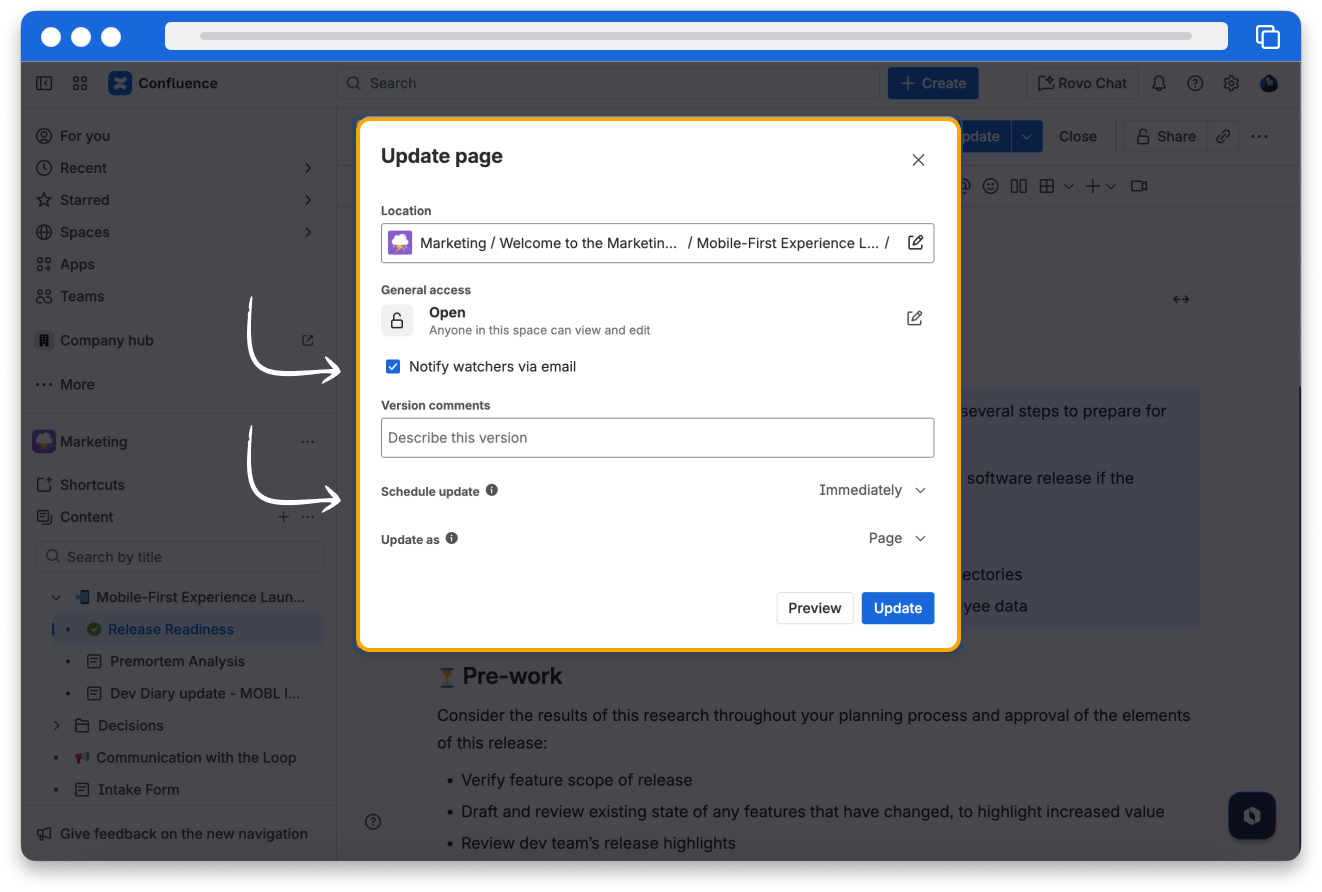
👇 Watch this video to follow Kevin as he creates and publishes a Confluence page.